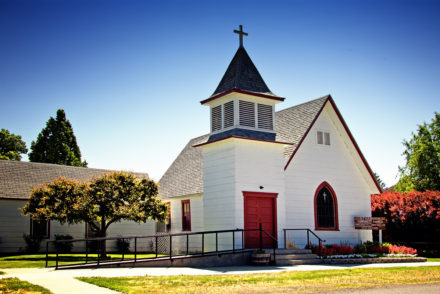Webster’s dictionary defines “theology” as “the study of the religious faith, practice, and experience.” Technically speaking theology is God (theo) talk (logy). We are doing theology when we talk about God.
But it’s so much more than that. The Bible says that Christians are to love “the Lord your God with all your heart, with all your soul, and with all your strength” (Deut 6:5). That includes our minds as well. When we do theology, when we think about the difficult teachings of the Bible, we are loving God. In fact, theology is an act of worship.
Unfortunately, not all Christians see it that way. A famous evangelist’s daughter wrote a book, “Don’t Give Me Theology, Just Give Me Jesus.” Her concern was that too often we major on the minors, spending valuable time fighting over theological distinctions that remain unclear in Scripture when we should be focusing on clear matters like the Great Commission. However, many Christians ignore the intent of the book and embrace the plain meaning of the title: they see theology as “boring,” something that seminary students and pastors do, but not particularly relevant for the church. That approach is wrong-headed and it is dangerous.
One cannot describe the ministry of Jesus without doing theology. What was the incarnation? What does atonement mean? Without theology, the Christian Jesus is no different than the Mormon Jesus (brother of Satan) or the Islamic Jesus (just a good teacher).
Without theology we cannot fully appreciate the glory of God. We cannot understand how His mercy and His wrath go hand-in-hand. Without theology our faith is anemic, our defense of the faith is impoverished, and the future of our church is endangered.
Jesus, the Word, knew a little bit about theology. He taught it to His disciples. He taught it to His followers. In the encounter with the Samaritan woman, Jesus talked about theology. “We worship what we do know …” (John 4:22). This knowledge, Jesus said, drives us to worship God. “But an hour is coming, and is now here, when the true worshippers will worship in spirit and truth” (v. 23). God wants informed worshipers. How do we do that? Theology.
The Apostle Peter warned the church that there are “false prophets among the people, just as there will be false teachers among you” (1 Peter 2:1). These prophets and teachers, he wrote, bring into the church “destructive heresies.” How will we recognize them? How can we combat them? In a word: theology.
As Christians we do theology when we study the Bible. We do theology when we hear a sermon. We do theology on Sunday nights. We do theology even during our prayer meetings. We do these things not because your pastor is a theologian. We do them because we love God and we want to know more about him.






No Comments